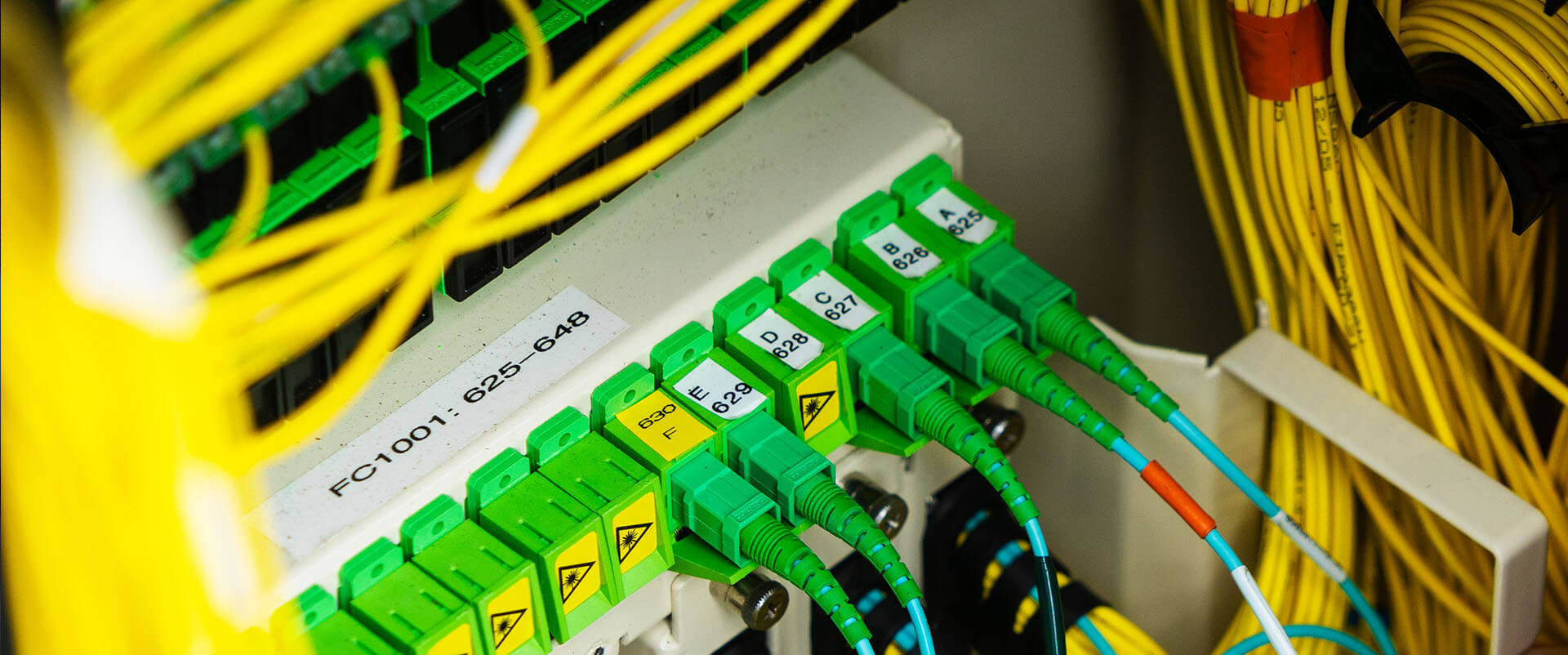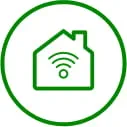We rely on the internet for practically everything, from communication and business to entertainment and education. And yet, as much as the internet is woven into the tapestry of our lives, most people have difficulty understanding how it works, as well as many of the terms associated with its functionality. Two of the terms that often come up in discussions about internet performance are “speed” and “bandwidth.” While they may sound interchangeable, and people tend to use them that way, these terms refer to two distinct aspects of internet connectivity.
Defining internet speed and bandwidth
Speed
Internet speed, which is usually broken down into “download” speed and “upload” speed, refers to how fast data can be transferred between your device and the internet. It’s worth remembering that the internet is simply a global computer network that moves data from one place to another. Download speed relates to the time it takes for data to be received from the internet to your device, such as when loading a web page or streaming a video. Conversely, upload speed is the time it takes for data to be sent from your device to the internet, like when you send an email with attachments or upload files to the cloud.
Bandwidth
Often expressed in bits per second (bps), bandwidth refers to the maximum data capacity of a network channel or connection. Bandwidth plays a critical role in determining how much data can flow through an internet connection at any given moment. Think of it as the width of a highway; the wider the highway is, the more cars (data) can travel on it at the same time. In fact, the concept of bandwidth has gone beyond its association with the internet to become a widely used cultural term to describe the amount of time (or lack thereof) that a person has to work on something
Understanding the relationship between internet speed and bandwidth
While internet speed and bandwidth are obviously related, they are not the same thing. Bandwidth sets the upper limit of the amount of data that can be transmitted, while internet speed measures the rate of the data being transferred at a specific moment.
Let's go back to our example of a highway. The bandwidth is the width of the highway, which determines the maximum number of cars that can travel along it. The internet speed is equivalent to the speed at which the cars can travel. A wider highway (high bandwidth) can not only accommodate more cars (data transfer), but also enables those cars to move at faster speeds. It's the interplay between speed and bandwidth that makes for a great online experience. However, there are certain factors that can negatively impact both the speed and bandwidth of your internet connection.
Factors affecting internet speed and bandwidth
Internet speed
- Your internet service provider (ISP): The ISP you choose can significantly impact your internet speed. Different providers offer varying speeds and performance levels, depending on their infrastructure and service plans.
- Network congestion: During peak hours or in densely populated areas, network congestion may occur, leading to slower internet speeds for users sharing the same network resources. This is just one of the reasons why more people are choosing fiber: with fiber, there are no shared connections, so there is no congestion.
- Throttling: Throttling is when your ISP intentionally limits your internet speeds. Providers can do this for a number of reasons, including network congestion, data caps, and paid prioritization.
- Distance from server: The proximity to the server hosting the website or service can affect the time it takes for data to travel back and forth, impacting the internet speed.
Bandwidth
- Network infrastructure: The quality and capacity of the network infrastructure, including routers, switches and cabling determine the maximum bandwidth available.
- Type of connection: Different internet technologies offer varying bandwidth capacities. For example, fiber-optic connections provide higher bandwidth than DSL or cable connections.
- Shared vs. dedicated bandwidth: In shared environments, multiple users share the same bandwidth, potentially leading to slower speeds during peak usage. In contrast, dedicated bandwidth ensures a consistent data rate for a single user or organization.
Implications for online activities
Having a better understanding of the difference between internet speed and bandwidth can have major implications for various online activities:
- Web browsing: A high internet speed allows web pages to load quickly, while sufficient bandwidth ensures smooth browsing even during periods of heavy traffic.
- Streaming and gaming: High-speed internet with ample bandwidth is vital for seamless streaming of HD videos and lag-free gaming experiences.
- Video conferencing: Sufficient bandwidth is crucial for clear and uninterrupted video conferencing, especially in multi-party calls.
- File transfers: Both internet speed and bandwidth influence the time it takes to upload or download large files.
- Cloud services: Adequate bandwidth is essential to store and access data and programs over the internet instead of on your computer.
Tips for improving internet performance
There are certain things you can do to optimize your internet experience, including:
- Check your internet plan: Make sure that your plan aligns with your usage needs and provides adequate speed and bandwidth for your online activities. Households with a lot of devices and people working from home can benefit from higher-speed plans.
- Update your equipment: Updating your modem, router or network devices can enhance your connection’s performance.
- Reduce network congestion: Schedule bandwidth-intensive tasks during off-peak hours to minimize network congestion and maintain higher speeds.
- Optimize WiFi location: Position your router in a central location, away from interference sources, and secure your WiFi network to prevent unauthorized usage. You might also want to consider using a WiFi extender to ensure a signal throughout your house.
- Switch to fiber internet: Fiber internet helps you to avoid many of the potential issues inherent to cable and DSL connections. Fiber provides an improved experience thanks to the same upload and download speeds and a dedicated connection.
Internet speed and bandwidth are two distinct concepts that play complementary roles in determining the quality of your online experiences. Understanding their differences will allow you to make informed decisions when selecting internet plans and optimizing your setup for a seamless and efficient online experience.
Ziply Fiber offers the fastest home internet in the Northwest. Whether you want to stream your favorite online content, experience seamless video conferencing, or attend online classes with a consistent, dependable connection, Ziply Fiber is here to provide you with an exceptional internet experience. To learn more about Ziply Fiber visit our website.






